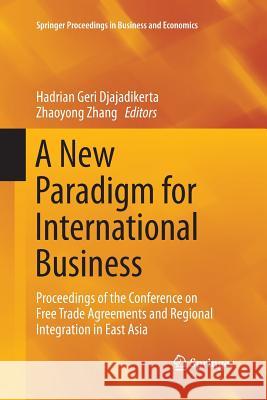A New Paradigm for International Business: Proceedings of the Conference on Free Trade Agreements and Regional Integration in East Asia » książka
topmenu
A New Paradigm for International Business: Proceedings of the Conference on Free Trade Agreements and Regional Integration in East Asia
ISBN-13: 9789811013096 / Angielski / Miękka / 2016 / 351 str.
A New Paradigm for International Business: Proceedings of the Conference on Free Trade Agreements and Regional Integration in East Asia
ISBN-13: 9789811013096 / Angielski / Miękka / 2016 / 351 str.
cena 603,81
(netto: 575,06 VAT: 5%)
Najniższa cena z 30 dni: 578,30
(netto: 575,06 VAT: 5%)
Najniższa cena z 30 dni: 578,30
Termin realizacji zamówienia:
ok. 22 dni roboczych
Dostawa w 2026 r.
ok. 22 dni roboczych
Dostawa w 2026 r.
Darmowa dostawa!
This book offers a collection of studies on regional integration and the dynamic business environment in East Asia.











